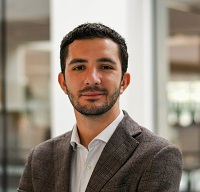Lunch seminar with Pedro Cuesta
Scholactivism in Public Law
In recent years, public-law scholars have been drawn into activism, particularly in response to government actions perceived as threats to the rule of law. A known example is the "Polish Constitutional Crisis" that began in 2015 when the Polish government implemented judicial reforms weakening the Constitutional Tribunal and Supreme Court. These actions sparked widespread concern about the erosion of judicial independence and democratic governance. Among the most outspoken critics was Professor Wojciech Sadurski, a constitutional law expert. Sadurski publicly condemned the government's reforms as unconstitutional, emphasizing the threat to democratic norms. In retaliation, the Polish government targeted him with defamation lawsuits, highlighting the tension between his role as an academic and his activism. This case exemplifies the ethical challenges faced by public-law scholars: Should they remain neutral and uphold academic objectivity, or step beyond academia to defend democratic values, even at personal risk?
This dilemma underscores the growing debate around ‘scholactivism’ — a concept that blurs the boundaries between academic inquiry and political action. In recent years, scholars have increasingly felt compelled to influence society, from opposing illiberal government actions to condemning international aggressions. The aim of this entry is to analyze the impact of scholactivism on one particular kind of academic: public-law scholars, who, due to the nature of their field, are especially prone to facing this moral conflict. Public law can be defined as the area of law governing relations between private entities, including individuals and public authorities, or between public institutions. Although the subject of study is narrow, some of the conclusions that this entry reaches can be generalized, serving to understand the discussion on scholactivism in other fields.
Speaker bio
 Pedro Cuesta García is a Marie Skłodowska-Curie Doctoral Fellow under the framework of the GEM-DIAMOND PhD fellowship, part of the European Union’s Horizon Europe research and innovation programme. Pedro holds a Bachelors of Laws (LLB) from the University Carlos III de Madrid, and a "European Public Law & Governance" Masters of Laws (LLM) from the European Law School of Maastricht University. His joint PhD journey starts at Luiss Guido Carli University in Rome and continues at iCourts, the Danish National Research Foundation's Centre of Excellence for International Courts, at the University of Copenhagen. His supervisors are Professor Giovanni Piccirilli, from Luiss University, and Professor Mikael Madsen, from the University of Copenhagen.
Pedro Cuesta García is a Marie Skłodowska-Curie Doctoral Fellow under the framework of the GEM-DIAMOND PhD fellowship, part of the European Union’s Horizon Europe research and innovation programme. Pedro holds a Bachelors of Laws (LLB) from the University Carlos III de Madrid, and a "European Public Law & Governance" Masters of Laws (LLM) from the European Law School of Maastricht University. His joint PhD journey starts at Luiss Guido Carli University in Rome and continues at iCourts, the Danish National Research Foundation's Centre of Excellence for International Courts, at the University of Copenhagen. His supervisors are Professor Giovanni Piccirilli, from Luiss University, and Professor Mikael Madsen, from the University of Copenhagen.
Academic interest
His academic interests are centred on various areas of EU law:
- the constitutional aspects of EU law; constitutional pluralism, the construction of the EU polity, the fundamental values of the EU, and the protection of fundamental rights among others;
- the Law of the Economic and Monetary Union, including the banking union, and
- the Law of the Common Commercial policy,
Thesis' topic
His Ph.D. Thesis investigates the gaps in the cooperation between the Court of Justice of the European Union (CJEU) and national courts, especially constitutional and supreme courts. In particular, the focus is on how such gaps, due to misunderstandings at times and open conflicts at others, have challenged the primacy of EU law and whether this phenomenon affects the autonomous nature of the EU legal order and the primacy of EU law. In a nutshell, his thesis analyzes what motivates the resistance of some constitutional/supreme courts to the primacy of European Union law, and more broadly the judicial activism of the CJEU.
Pedro Cuesta Garcia was staying at iCourts from 20 August 2023 to 30 June 2024.
Meeting ID: 660 3625 0073
Passcode: 308829
